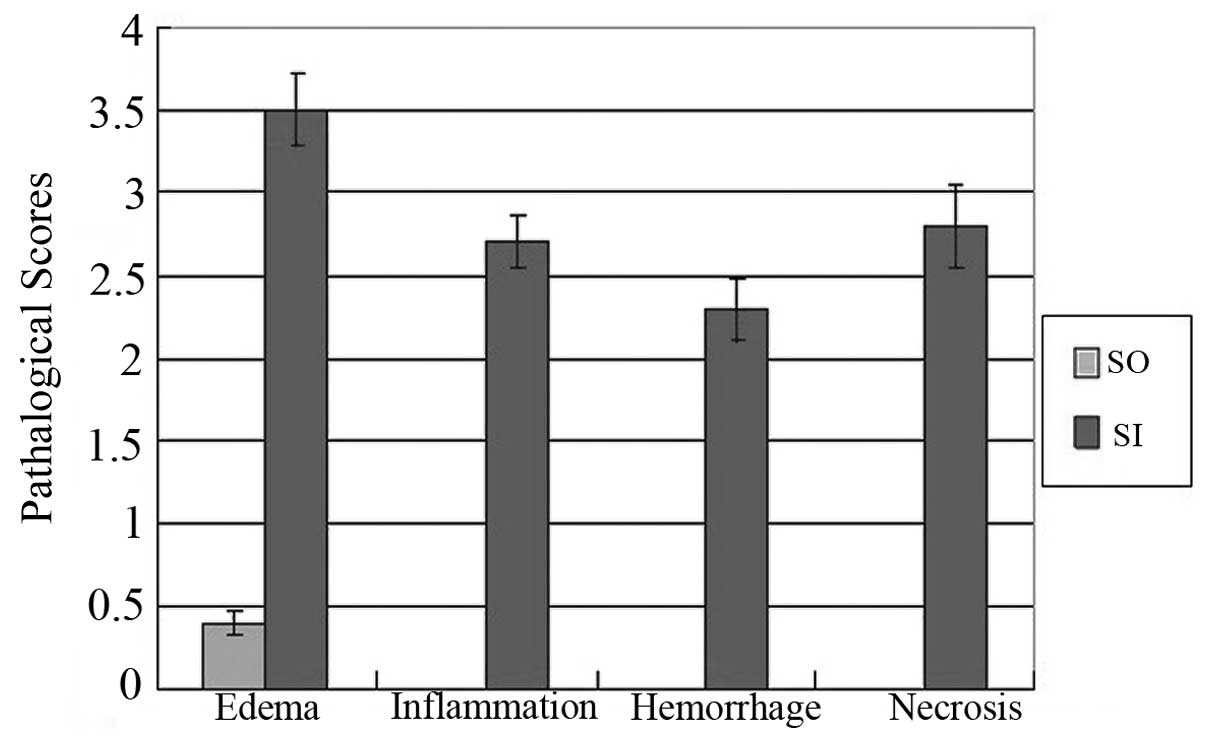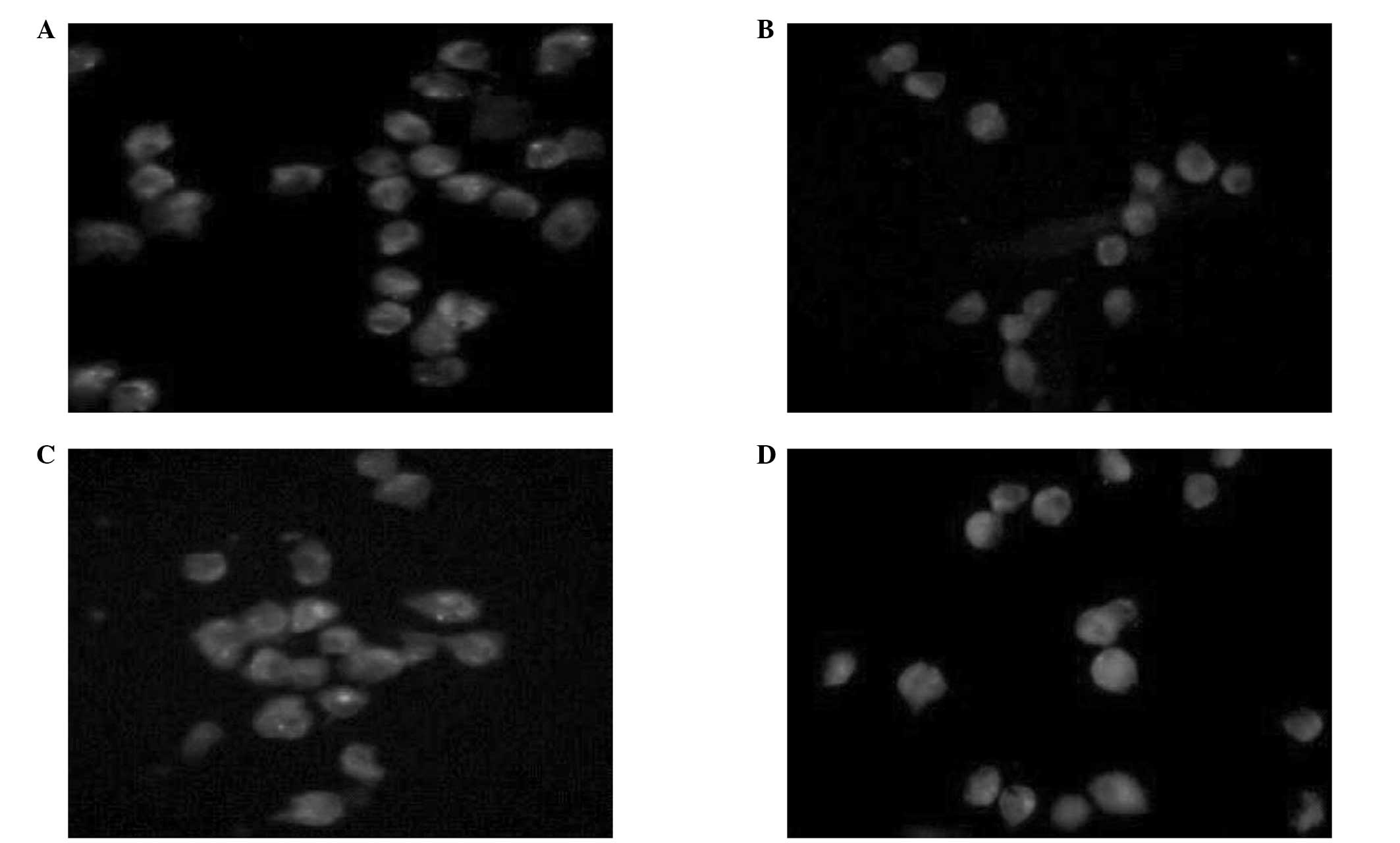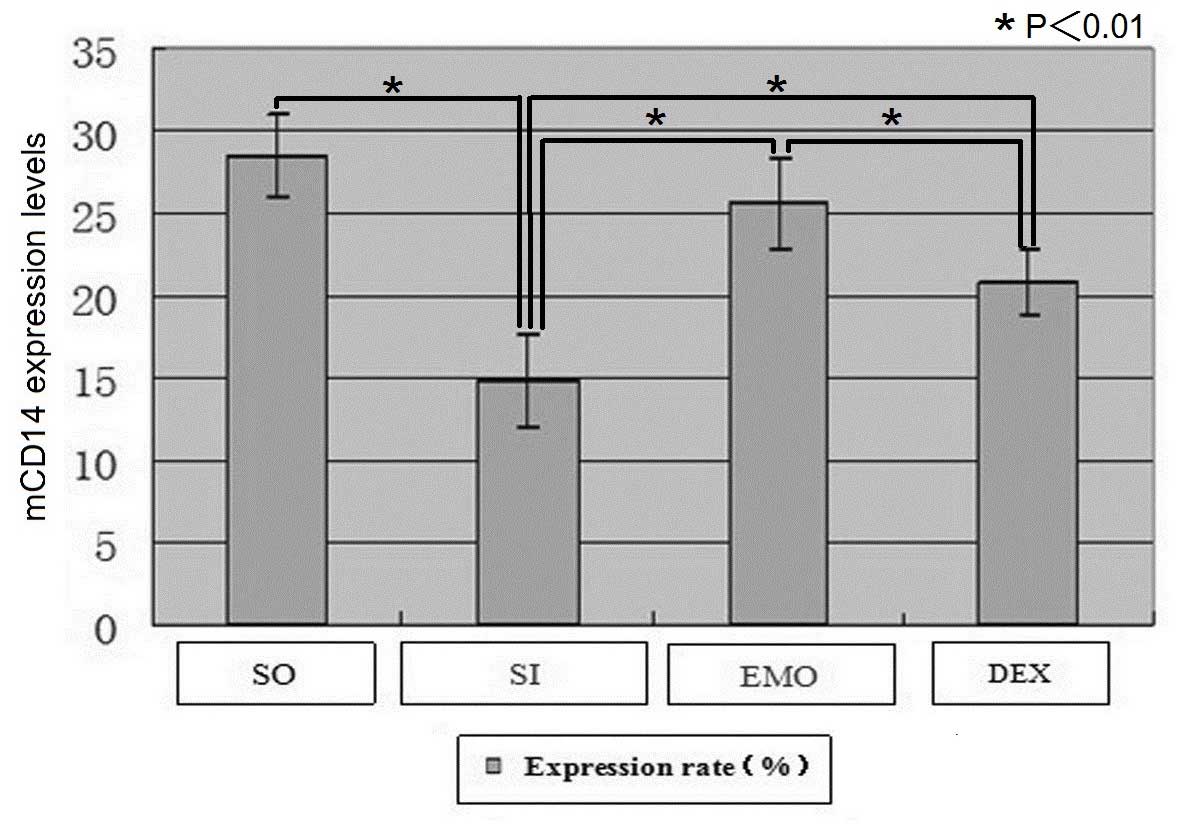|
1
|
Frossard JL, Steer ML and Pastor CM: Acute
pancreatitis. Lancet. 371:143–152. 2008. View Article : Google Scholar
|
|
2
|
Doctor N, Agarwal P and Gandhi V:
Management of severe acute pancreatitis. Indian J Surg. 74:40–46.
2012. View Article : Google Scholar
|
|
3
|
Blomgran R, Patcha Brodin V, Verma D, et
al: Common genetic variations in the NALP3 inflammasome are
associated with delayed apoptosis of human neutrophils. PLoS One.
7:e313262012. View Article : Google Scholar : PubMed/NCBI
|
|
4
|
Paunel-Görgülü A, Kirichevska T, Lögters
T, Windolf J and Flohé S: Molecular mechanisms underlying delayed
apoptosis in neutrophils from multiple trauma patients with and
without sepsis. Mol Med. 18:325–335. 2012.PubMed/NCBI
|
|
5
|
Schwartz JT, Bandyopadhyay S, Kobayashi
SD, et al: Francisella tularensis alters human neutrophil
gene expression: insights into the molecular basis of delayed
neutrophil apoptosis. J Innate Immun. 5:124–136. 2013. View Article : Google Scholar
|
|
6
|
Terashima M, Aoyama-Ishikawa M, Ueda T, et
al: The effects of n-3 polyunsaturated fatty acid-rich total
parenteral nutrition on neutrophil apoptosis in a rat endotoxemia.
J Clin Biochem Nutr. 52:154–159. 2013. View Article : Google Scholar : PubMed/NCBI
|
|
7
|
Shang D, Wang BZ, Bi W, Chen HL, Qi QH and
Guan FL: Abnormal polymorphonuclear neutrophils apoptosis in
systemic inflammatory response syndrome. Dalian Yike Daxue Xuebao.
28:161–163. 2006.
|
|
8
|
Zhang J, He J, Xia J, Chen Z and Chen X:
Delayed apoptosis by neutrophils from COPD patients is associated
with altered Bak, Bcl-xl, and Mcl-1 mRNA expression. Diagn Pathol.
7:652012. View Article : Google Scholar : PubMed/NCBI
|
|
9
|
Willems CH, Urlichs F, Seidenspinner S,
Kunzmann S, Speer CP and Kramer BW: Poractant alfa
(Curosurf®) increases phagocytosis of apoptotic
neutrophils by alveolar macrophages in vivo. Respir Res.
13:172012.
|
|
10
|
Schütt C: CD14. Int J Biochem Cell Biol.
31:545–549. 1999.
|
|
11
|
Kaiser AM, Saluja AK, Sengupta A, Saluja M
and Steer ML: Relationship between severity, necrosis, and
apoptosis in five models of experimental acute pancreatitis. Am J
Physiol. 269:C1295–C1304. 1995.PubMed/NCBI
|
|
12
|
Pietruska M, Zak J, Pietruski J and
Wysocka J: Evaluation of mCD14 expression on monocytes and the
blood level of sCD14 in patients with generalized aggressive
periodontitis. Adv Med Sci. 51(Suppl 1): S166–S169. 2006.PubMed/NCBI
|
|
13
|
Wright SD, Ramos RA, Tobias PS, Ulevitch
RJ and Mathison JC: CD14, a receptor for complexes of
lipopolysaccharide (LPS) and LPS binding protein. Science.
249:1431–1433. 1990. View Article : Google Scholar : PubMed/NCBI
|
|
14
|
Klaassen EM, Thönissen BE, van Eys G,
Dompeling E and Jöbsis Q: A systematic review of CD14 and toll-like
receptors in relation to asthma in Caucasian children. Allergy
Asthma Clin Immunol. 9:102013. View Article : Google Scholar : PubMed/NCBI
|
|
15
|
Fadok VA, Warner ML, Bratton DL and Henson
PM: CD36 is required for phagocytosis of apoptotic cells by human
macrophages that use either a phosphatidylserine receptor or the
vitronectin receptor (alpha v beta 3). J Immunol. 161:6250–6257.
1998.PubMed/NCBI
|
|
16
|
Ziegler-Heitbrock HW and Ulevitch RJ:
CD14: cell surface receptor and differentiation marker. Immunol
Today. 14:121–125. 1993. View Article : Google Scholar : PubMed/NCBI
|
|
17
|
Bazil V and Strominger JL: Shedding as a
mechanism of down-modulation of CD14 on stimulated human monocytes.
J Immunol. 147:1567–1574. 1991.PubMed/NCBI
|
|
18
|
Marchant A, Duchow J, Delville JP and
Goldman M: Lipopolysaccharide induces up-regulation of CD14
molecule on monocytes in human whole blood. Eur J Immunol.
22:1663–1665. 1992. View Article : Google Scholar
|
|
19
|
Nathens AB, Bitar R, Marshall JC, et al:
Antioxidants increase lipopolysaccharide-stimulated TNF alpha
release in murine macrophages: role for altered TNF alpha mRNA
stability. Shock. 16:361–367. 2001. View Article : Google Scholar : PubMed/NCBI
|
|
20
|
Hsiao HB, Wu JB, Lin H and Lin WC:
Kinsenoside isolated from Anoectochilus formosanus
suppresses LPS-stimulated inflammatory reactions in macrophages and
endotoxin shock in mice. Shock. 35:184–190. 2011.
|
|
21
|
Li S, Ni Z, Cong B, et al: CCK-8 inhibits
LPS-induced IL-1beta production in pulmonary interstitial
macrophages by modulating PKA, p38, and NF-kappaB pathway. Shock.
27:678–686. 2007. View Article : Google Scholar : PubMed/NCBI
|
|
22
|
Boonstra A, Rajsbaum R, Holman M, et al:
Macrophages and myeloid dendritic cells, but not plasmacytoid
dendritic cells, produce IL-10 in response to MyD88- and
TRIF-dependent TLR signals, and TLR-independent signals. J Immunol.
177:7551–7558. 2006. View Article : Google Scholar : PubMed/NCBI
|
|
23
|
Li Z, Xia X, Zhang S, Zhang A, Bo W and
Zhou R: Up-regulation of Toll-like receptor 4 was suppressed by
emodin and baicalin in the setting of acute pancreatitis. Biomed
Pharmacother. 63:120–128. 2009. View Article : Google Scholar : PubMed/NCBI
|
|
24
|
Wang G, Sun B, Gao Y, Meng QH and Jiang
HC: The effect of emodin-assisted early enteral nutrition on severe
acute pancreatitis and secondary hepatic injury. Mediators Inflamm.
2007:296382007. View Article : Google Scholar : PubMed/NCBI
|
|
25
|
Yang CY, Shen L, Xie ZG, Jiang X, Liang N
and Chen ZH: Experimental studies of therapeutic effect of Rheum
officinale on acute pancreatitis. Zhong Yao Cai. 34:84–88. 2011.(In
Chinese).
|
|
26
|
Zheng SH, Tong QY, Zhu ZY, Li ZY and You
H: Effect of Rhubarb administered via different routes on blood
inflammatory cytokines levels of patients with severe acute
pancreatitis. Zhongguo Wei Zhong Bing Ji Jiu Yi Xue. 23:437–438.
2011.(In Chinese).
|
|
27
|
Kuo YC, Meng HC and Tsai WJ: Regulation of
cell proliferation, inflammatory cytokine production and calcium
mobilization in primary human T lymphocytes by emodin from
Polygonum hypoleucum Ohwi. Inflamm Res. 50:73–82. 2001. View Article : Google Scholar : PubMed/NCBI
|
|
28
|
Li A, Dong L, Duan ML, Sun K, Liu YY, Wang
MX, et al: Emodin improves lipopolysaccharide-induced
microcirculatory disturbance in rat mesentery. Microcirculation.
20:617–628. 2013. View Article : Google Scholar : PubMed/NCBI
|
|
29
|
Stephenson HE Jr, Pfeffer RB and Saypol
GM: Acute hemorrhagic pancreatitis; report of a case with cortisone
treatment. AMA Arch Surg. 65:307–308. 1952. View Article : Google Scholar : PubMed/NCBI
|
|
30
|
Jingmin O, Xiping Z, Chun W, Ping Y and
Qian Y: Study of dexamethasone, baicalin and octreotide on brain
injury of rats with severe acute pancreatitis. Inflamm Res.
61:265–275. 2012. View Article : Google Scholar : PubMed/NCBI
|
|
31
|
Zhang XP, Chen L, Hu QF, et al: Effects of
large dose of dexamethasone on inflammatory mediators and
pancreatic cell apoptosis of rats with severe acute pancreatitis.
World J Gastroenterol. 13:5506–5511. 2007. View Article : Google Scholar : PubMed/NCBI
|
|
32
|
Jha RK, Ma Q, Sha H and Palikhe M: Acute
pancreatitis: a literature review. Med Sci Monit. 15:RA147–RA156.
2009.PubMed/NCBI
|
|
33
|
Ou JM, Zhang XP, Wu CJ, Wu DJ and Yan P:
Effects of dexamethasone and Salvia miltiorrhiza on multiple
organs in rats with severe acute pancreatitis. J Zhejiang Univ Sci
B. 13:919–931. 2012.
|

















